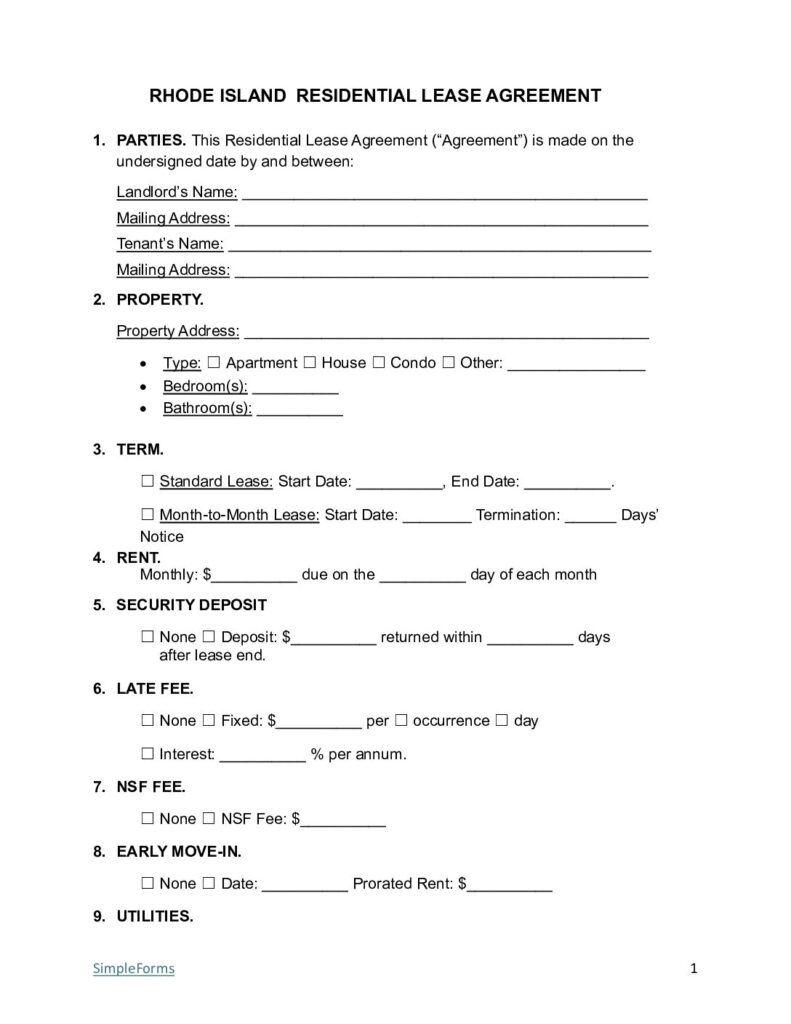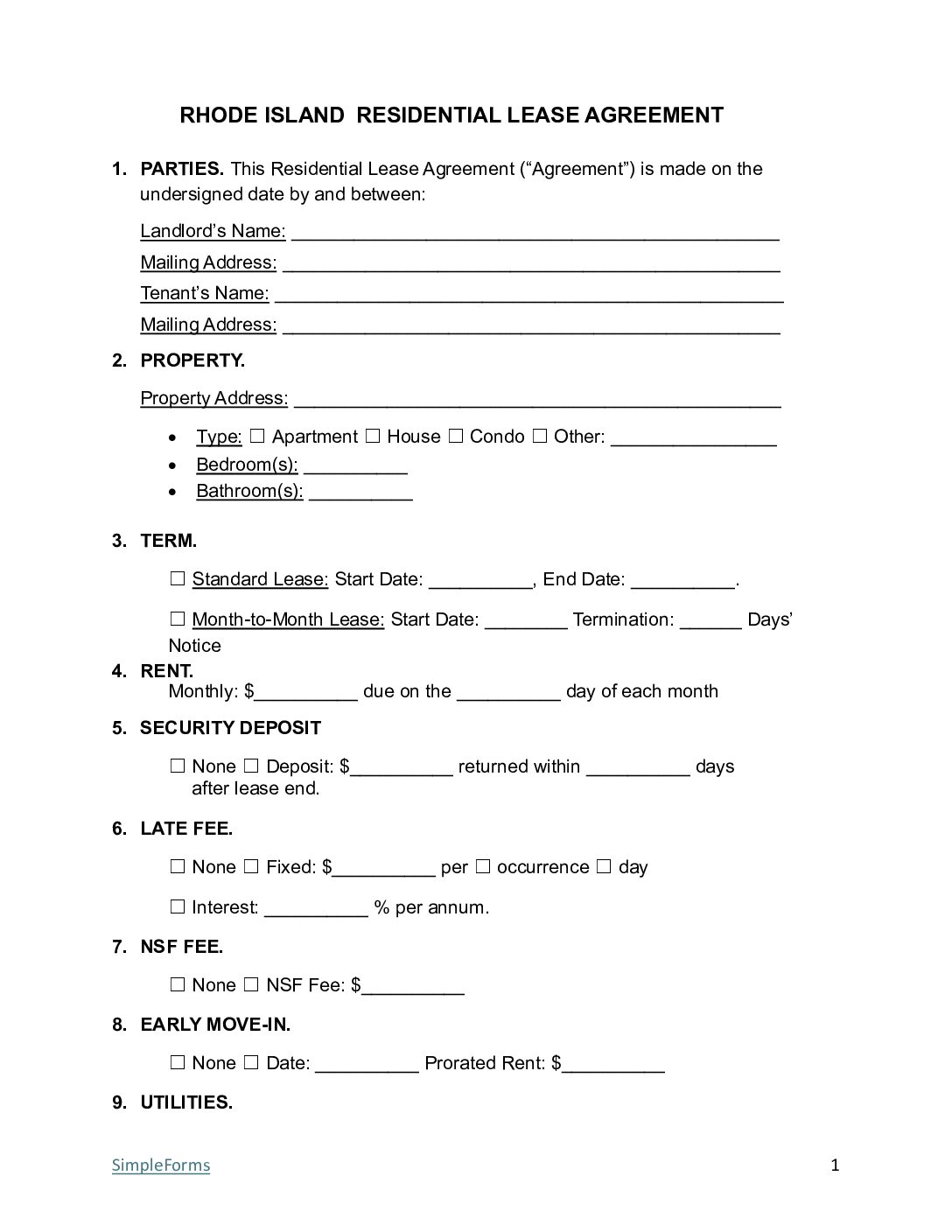Rhode Island Rental Application Form– A rental application is a form potential tenants fill out to apply for a property. Landlords and Property Managers use this document to gather information and decide if the applicant is a good fit. Once approved, both parties can sign the Rhode Island Residential Lease Agreement Template.
🏠 Rhode Island Tenant Rights & Landlord Obligations
Tenant Rights
- Right to habitable living conditions
- Privacy rights and proper notice for entry
- Protection from discrimination
- Timely return of security deposits
- Right to organize tenant associations
Landlord Obligations
- Maintain property in habitable condition
- Make necessary repairs promptly
- Provide required disclosures
- Follow proper eviction procedures
- Respect tenant privacy rights
Required Disclosure Forms in New Jersey – 4
Rhode Island landlords must provide specific disclosures to tenants as mandated by state law. Failure to provide these disclosures can result in legal complications and potential liability.
- Lead-Based Paint Disclosure Form – If the property was built before 1978, landlords must notify tenants about potential lead-based paint potential hazards.
- Code Violations (if any)- Landlords must disclose to tenants if there are any outstanding code violations against the property. [Truth-in-Renting Act]
- Landlord/Owner Identification – Landlords must share the names of property managers, property owners, and anyone authorized to receive legal notices, to adhere to the Landlord Identity Law.
- Security Deposit Information – Banking details and return procedures. Landlords must disclose where security deposits are held, applicable interest rates, and the process for returning deposits after lease termination.
Sample Rhode Island Residential Lease Agreement Template
Frequently Asked Questions
Is a rental application fee legal in Rhode Island?
Yes, landlords in Rhode Island can charge reasonable application fees to cover the cost of background checks and credit reports. However, the fee should be limited to actual costs incurred.
How long does a landlord have to respond to a rental application?
While Rhode Island doesn’t specify a timeframe, most landlords respond within 1-3 business days. It’s recommended to follow up if you haven’t heard back within a week.
Can a landlord reject an application based on income?
Yes, landlords can set income requirements (typically 2.5-3 times the monthly rent) as long as these standards are applied consistently and don’t discriminate against protected classes.

